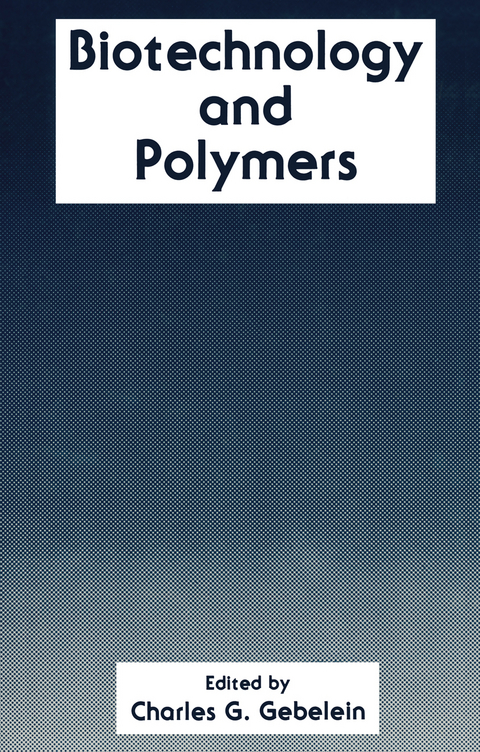
Biotechnology and Polymers
Springer-Verlag New York Inc.
978-1-4613-6715-4 (ISBN)
I. Novel Biotechnology-Derived Polymers.- New and Traditional Polymers from Biotechnology.- Use of the Antiviral and Immune Modulator, Poly ( ICLC ), in the Treatment of AIDS.- Synthesis and Interaction of Water Soluble Nucleic Acid Analogs.- Influence of Copolymer Structure on Properties of Poly-?-Hydroxyalkanoates.- Biodegradation of Blends Containing Poly (3-Hydroxybutyrate-Co-Valerate).- The Use of Biotechnology Derived Monomers in the Synthesis of New Polymers: Development of Polyesterimides.- The Biosynthesis of Unusual Polyamides Containing Glutamic Acid.- Vernonia Oil: A New Reactive Monomer.- Interpenetrating Polymer Networks Based on Functional Triglyceride Oils and Other Not Yet Commercial Renewable Resources.- Structural Characterization of Organostannane — Kraft Lignin.- II. Polysaccharide Based Systems.- Examples of Analytical Approaches to Industrially Important Poly (saccharides).- Bacterial Polysaccharides for Use in Food and Agriculture.- Degree of Substitution of Dextran Modified Through Reaction With Organostannane Chlorides and Group IV-B Metallocene Dichlorides.- Acidic Polysaccharides: Their Modification and Potential Uses.- Structure-Controlled Synthesis of Regiospecifically Modified Polysaccharides Starting From a Pyrolysis Product of Cellulose.- Biological Gels: The Gelation of Chitosan and Chitin.- Transport Properties of Membranes Containing Chitosan Derivatives.- Sorption Behavior of Chemically Modified Chitosan Gels.- III. Protein and Enzyme Based Systems.- Quinone Chemistry: Applications in Bioadhesion.- Synthetic Mussel Adhesive Proteins.- Poly (VAL1-PRO2-ALA3-VAL4-GLY5) : A Reversible, Inverse Thermoplastic.- Requirement for a 1-µm Pore Channel Opening During Perifheral Nerve Regeneration Through a Biodegradable Chemical Analog ofECM.- The Development of Collagen Nerve Conduits That Promote Peripheral Nerve Regeneration.- Polymeric Reagents for Protein Modification.- Preparation of Semisynthetic Enzymes by Chemical Means.- Redesign of Protein Function: A Semisynthetic Selenoenzyme.- Spacer Effects on Enzymatic Activity Immobilized Onto Polymeric Substrates.- Contributors.
| Zusatzinfo | IX, 351 p. |
|---|---|
| Verlagsort | New York, NY |
| Sprache | englisch |
| Maße | 156 x 244 mm |
| Themenwelt | Naturwissenschaften ► Chemie ► Anorganische Chemie |
| Naturwissenschaften ► Chemie ► Organische Chemie | |
| Technik ► Maschinenbau | |
| ISBN-10 | 1-4613-6715-8 / 1461367158 |
| ISBN-13 | 978-1-4613-6715-4 / 9781461367154 |
| Zustand | Neuware |
| Haben Sie eine Frage zum Produkt? |
aus dem Bereich


